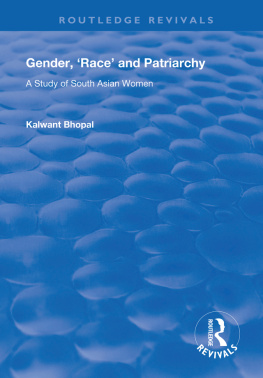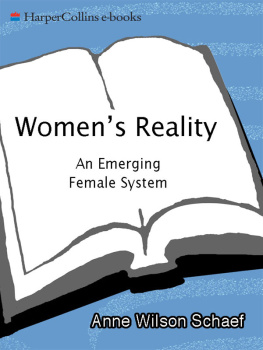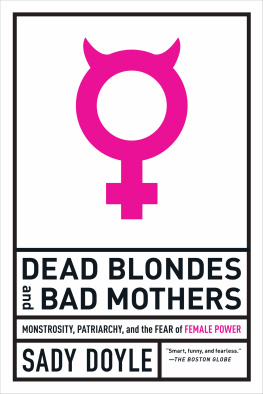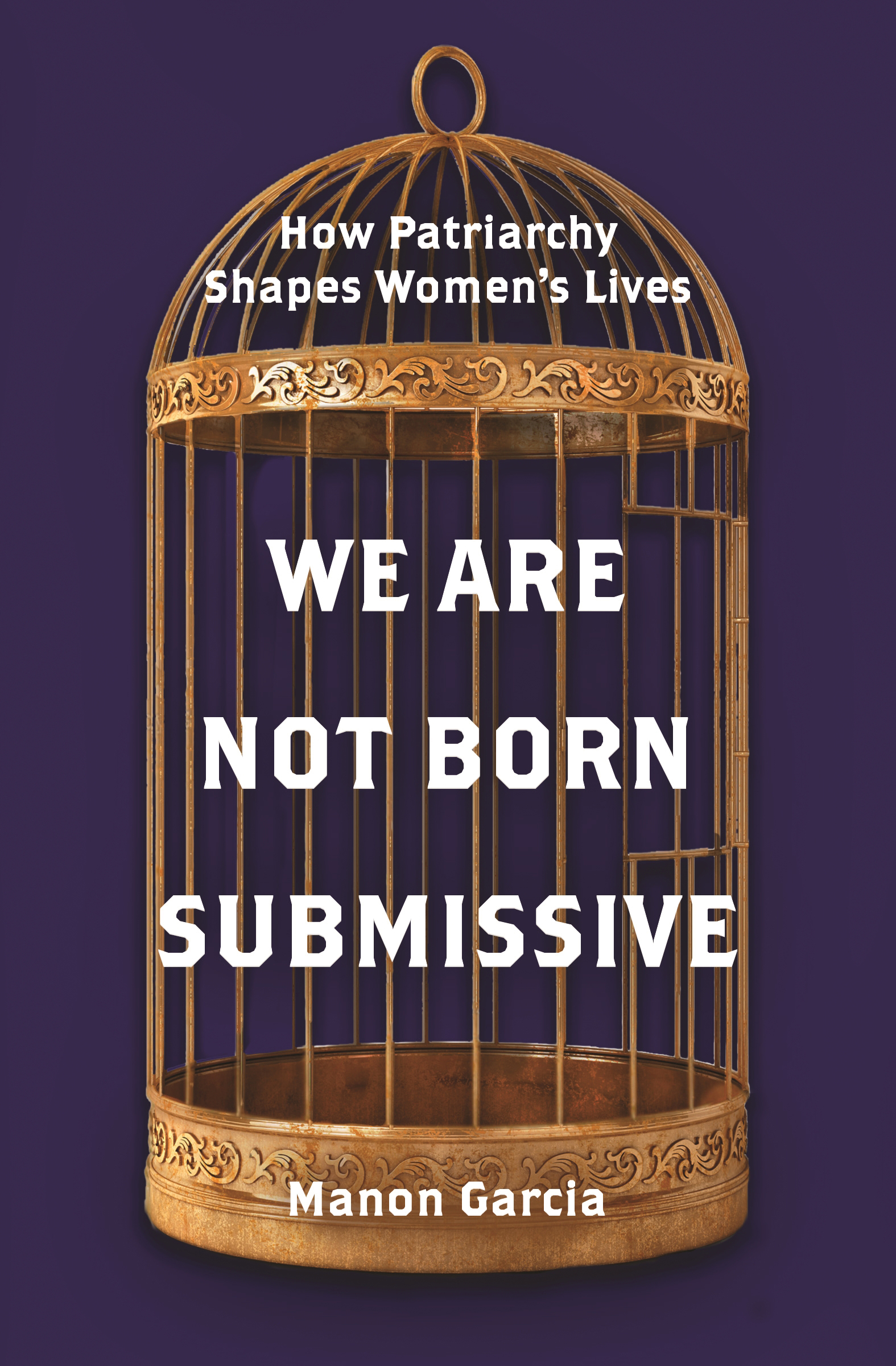WE ARE NOT BORN SUBMISSIVE
We Are Not Born Submissive
How Patriarchy Shapes Womens Lives
Manon Garcia
PRINCETON UNIVERSITY PRESS
PRINCETON AND OXFORD
English language copyright 2021 by Princeton University Press
Originally published as On ne nat pas soumise, on le devient
Climats, department of Flammarion, 2018
Requests for permission to reproduce material from this work should be sent to
Published by Princeton University Press
41 William Street, Princeton, New Jersey 08540
6 Oxford Street, Woodstock, Oxfordshire OX20 1TR
press.princeton.edu
All Rights Reserved
Library of Congress Cataloging-in-Publication Data
Names: Garcia, Manon, 1985author.
Title: We are not born submissive : how patriarchy shapes womens lives / Manon Garcia.
Other titles: On ne nat pas soumise, on le devient. English
Description: Princeton : Princeton University Press, [2021] | Originally published as On ne nait pas soumise on le devient Climats, department of Flammarion, 2018. | Includes bibliographical references and index.
Identifiers: LCCN 2020035185 (print) | LCCN 2020035186 (ebook) | ISBN 9780691201825 (hardcover) | ISBN 9780691212623 (ebook)
Subjects: LCSH: WomenPsychology. | Feminism. | Dominance (Psychology) | Submissiveness. | Sexual dominance and submission. | Man-woman relationships.
Classification: LCC HQ1208 .G2713 (print) | LCC HQ1208 (ebook) | DDC 155.3/33dc23
LC record available at https://lccn.loc.gov/2020035185
LC ebook record available at https://lccn.loc.gov/2020035186
British Library Cataloging-in-Publication Data is available
Editorial: Matt Rohal
Production Editorial: Kathleen Cioffi
Jacket Design: Sara Pinsonault
Jacket image by urfinguss / iStock
To Esther, Eve, and Salom
Feminist books are generally a prospective memory of a movement which constantly needs to be taken up again; those of Mary Wollstonecraft and Simone de Beauvoir are also excellent philosophy books and should be read as such. Because books by women are all sectioned off under a special heading (by women, about women, for women), half their potential readers are deprived of solid reading matter.
MICHLE LE DUFF,HIPPARCHIAS CHOICE
One of the most important questions confronting all feminist theorists is why women, who are, after all, a majority in most populations, so often seem to submit to or even collude with their own subordination. At its simplest, the question is: why are not all women feminists?
ALISON JAGGAR,FEMINIST POLITICS AND HUMAN NATURE
PREFACE
Even the most independent and feminist women can catch themselves enjoying the conquering way in which men look at them, desiring to be a submissive object in the arms of their partner, or preferring domestic workthe small pleasures of well-folded laundry, of a pretty-looking breakfast tableto supposedly more fulfilling activities. Are these desires and pleasures incompatible with their independence? Do they betray the centuries of feminism that precede them? Can one expect men to make the first move and demand sex equality? The ambiguities of these topics are blindingly obvious in everyday life or when one opens a womens magazine: at the same time women are called upon to be free, to have their own careers, and to refuse any degrading treatment from men, these magazines overflow with advice and norms on the best ways to be an attractive sexual object, an obliging wife, a perfect mother.
In the aftermath of the scandal involving film producer Harvey Weinstein that gave rise to the #MeToo movement,
This book aims to analyze these apparent contradictions with the help of philosophyespecially the philosophy of Simone de Beauvoir. It does not seek to offer ready-made answers or solutions but rather to show the complexity of the world and of lived experiences. What is at stake is not to determine once and for all whether women are victims or fighters, whether men are guilty or not, whether what matters is the individual or the social structure. On the contrary, to examine womens submission to men is to study the complex ways in which gender hierarchies in society shape womens experiences.
Submission
A PHILOSOPHICAL TABOO
From Penelope patiently weaving the shroud as she waits for the return of Ulysses in the Odyssey to Anastasia reveling in the commands of Christian Grey in Fifty Shades of Grey, from The Sexual Life of Catherine M. this phenomenon whose multiple manifestations we constantly encounter nonetheless.
Anyone who wants to study female submission is presented with a general philosophical problem: the analysis of the concept of submission repeatedly stumbles upon the commonly held idea that wanting anything other than ones freedom goes against human nature. For this reason, in the history of philosophy, submission is rarely discussed; and when it is, it is seen as either a moral vice or a pathology. Rousseau thus writes in The Social Contract: To renounce ones freedom is to renounce ones quality as a man, the rights of humanity, even its duties. There is no possible compensation for someone who renounces everything. Such a renunciation is incompatible with mans nature, and to deprive his will of all freedom is to deprive his actions of all morality. addresses not the masses submission to a tyrant but what he calls masochism, the phenomenon of drawing pleasure from ones own moral or psychological pain. He conceives of masochism as the opposite of sadism. Freud easily proposes a psychoanalytic explanation of sadism, but his theory struggles with what he calls the enigma of masochism. He identifies it as a pathology but does not manage to fully explain it. In general, philosophy fails to take seriously the fact that some people might want to obey other people and take pleasure in doing so.
When focusing specifically on female submission, the problem becomes even more complex. Historically, womens submission, unlike mens, has not been thought of as being contrary to human nature. Quite the opposite, submission is prescribed as the normal, moral, and natural behavior of women. This valorization of submission goes hand in hand with the idea of an essential and natural inferiority of women compared to men: it is because women are viewed as incapable of being free in the way that men are, or that such a freedom is seen as a potential danger, that their submission is good. To consider that women submit voluntarily is, in such a context, sexist. It presupposes a difference of nature between men and women, on the basis of which women would be inferior to men. This inferiority is seen as both a weakness and an immorality: on the one hand, women submit to men because they are naturally weaker than men. They are passive in this submission. On the other hand, their weakness makes them morally inferior: women are basking in a submission that perfectly fits their nature and that they sometimes choose, whereas for men, who are authentically free subjects, submission is a moral vice.
In sum, we are at an impasse. Either we talk about female submission in its complexity, without remaining silent on the appeal that submission can have, which ostensibly places us on the side of the sexist tradition that makes submission womens natural destiny. Or we posit that men and women are equal and, in that case, womens submission, like mens, is either a moral vice or a pathology and is not really within the scope of philosophical inquiry. In the case of the latter, the only possible explanation for the valorization of female submission in cultural works is to see it as a manifestation of male domination in these passive victims that women would be. Thus, either one takes the appeal of submission for women seriously and adopts the sexist position of an immutable female nature, or one refuses the idea of a natural inferiority of women and, in that case, submissive women who are satisfied with this submission appear as passive victims or submissive beings that are guilty of not cherishing their freedom.







